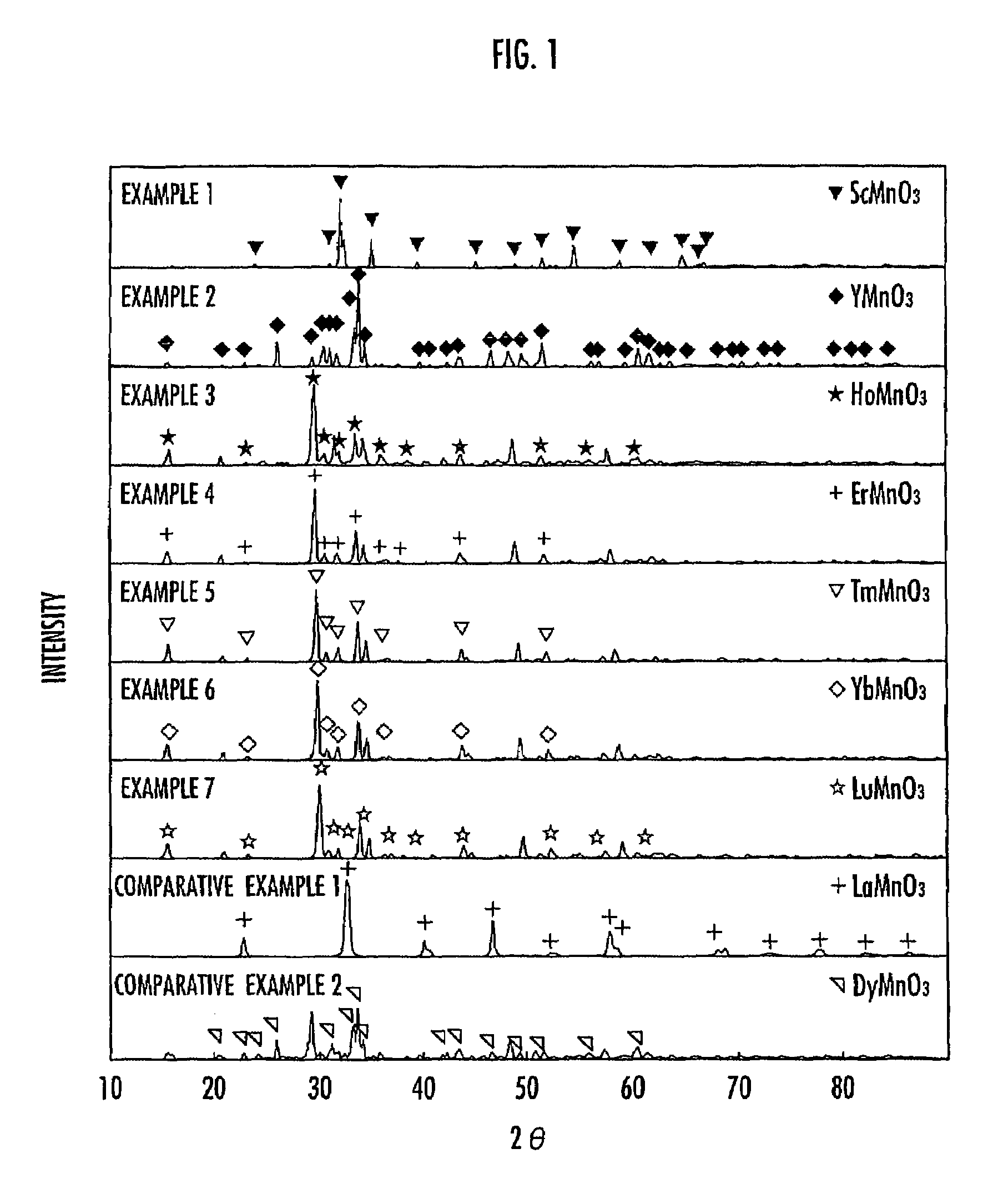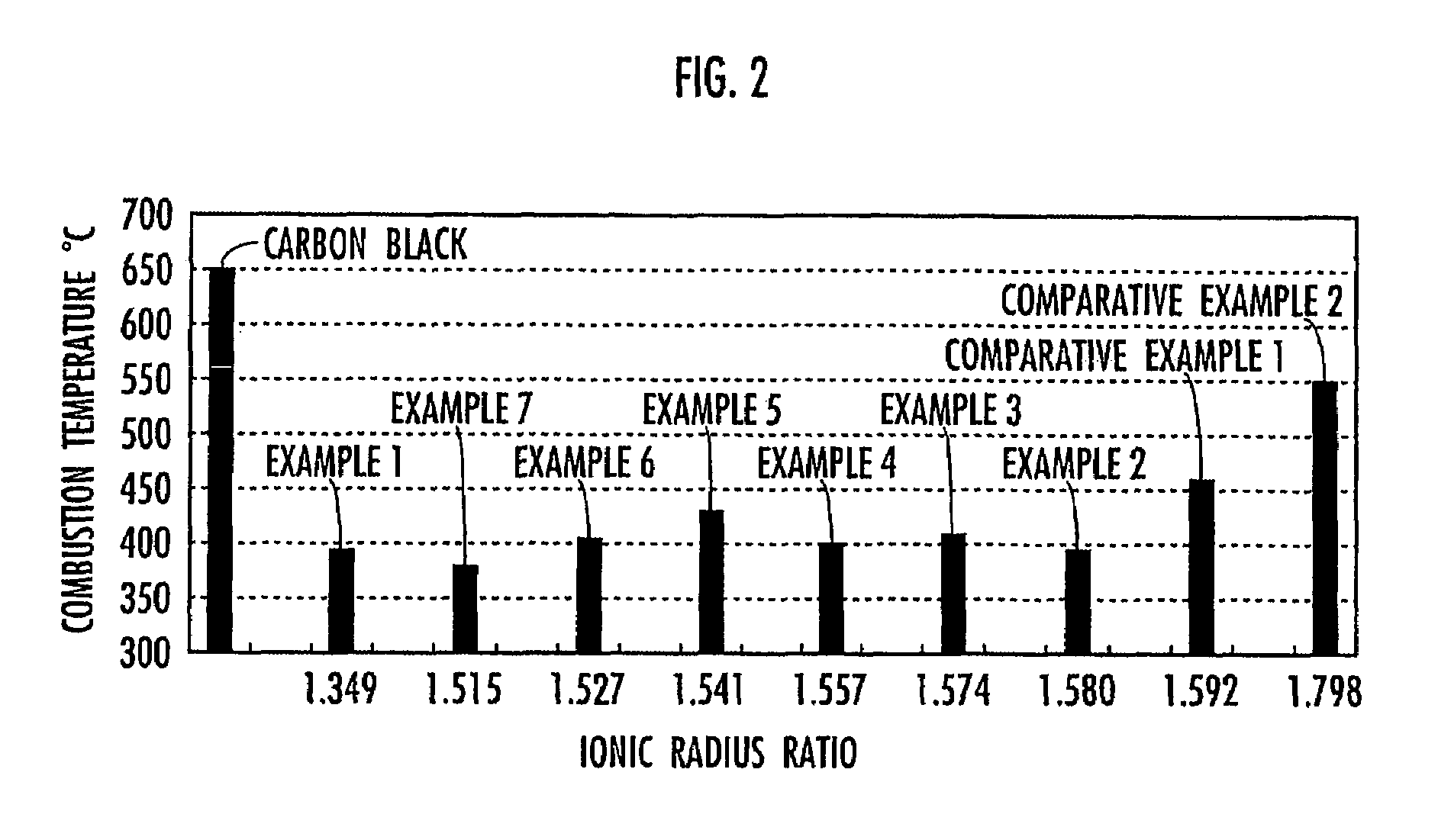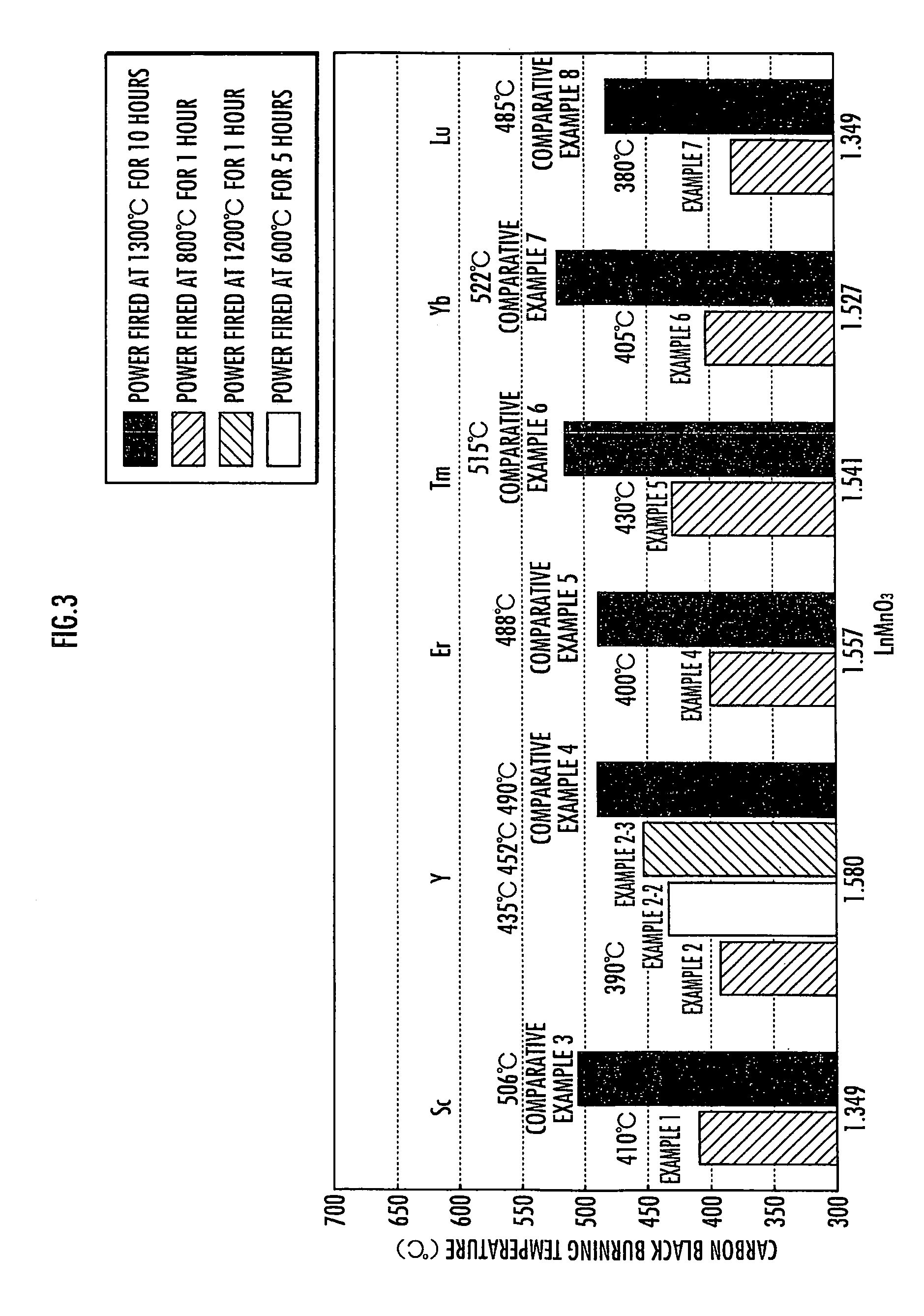Method of producing oxidation catalyst for cleaning exhaust gas
a technology of oxidation catalyst and exhaust gas, which is applied in the direction of metal/metal-oxide/metal-hydroxide catalyst, physical/chemical process catalyst, separation process, etc., can solve the problems of insufficient function of oxidizing particulates and polycyclic aromatic hydrocarbons, and conventional composite oxides are not sufficient. achieve excellent function of oxidizing high boiling point materials
- Summary
- Abstract
- Description
- Claims
- Application Information
AI Technical Summary
Benefits of technology
Problems solved by technology
Method used
Image
Examples
example 1
[0029]In this Example, the acetate or nitrate of manganese was first added to the acetate or nitrate of scandium into a molar ratio of Sc:Mn=1:1, to which urea was further added into a molar ratio of Sc:Mn:N2H4CO=1:1:6, followed by grind mixing. Next, the resultant mixture was allowed to react in the air at 250° C. for 30 minutes, then at 300° C. for 30 minutes, and further at 350° C. for one hour. After the end of reaction, the resultant mixture was subsequently grind mixed, followed by calcining in the air at 800° C. for one hour to provide a composite oxide.
[0030]To ascertain the crystal structure of the composite oxide obtained in this Example, the X-ray diffraction pattern thereof was then measured. The measurement was carried out under conditions of tube voltage: 50 kV, tube current: 150 mA, diffractometer: 4° / minute, and measuring range (2θ): 10 to 90° using an X-ray diffractometer from Burker. As a result, it turned out that the crystal obtained in this Example was ScMnO3 ha...
example 2
[0033]In this Example, a composite oxide was first obtained just as described in Example 1 except for the use of the acetate or nitrate of yttrium instead of the acetate or nitrate of scandium.
[0034]To ascertain the crystal structure of the composite oxide obtained in this Example, the X-ray diffraction pattern thereof was then measured just as described in Example 1. As a result, it turned out that the crystal obtained in this Example was YMnO3 having a hexagonal structure. The ionic radius ratio between Y and Mn (the ionic radius of Y / the ionic radius of Mn) was 1.580. The X-ray diffraction pattern is shown in FIG. 1.
[0035]To evaluate the oxidation property of the composite oxide obtained in this Example for particulates, the composite oxide was then mixed with carbon black, followed by performing the thermal analysis of carbon black just as described in Example 1. The mixture of the composite oxide obtained in this Example and carbon black had a combustion peak temperature of 390...
example 2-2
[0036]In this Example, a composite oxide was first obtained under the same condition as in Example 2 except that the grind mixed resultant material was fired not at 800° C. for 1 hour but at 600° C. for 5 hours.
PUM
| Property | Measurement | Unit |
|---|---|---|
| molar ratio | aaaaa | aaaaa |
| temperature | aaaaa | aaaaa |
| temperature | aaaaa | aaaaa |
Abstract
Description
Claims
Application Information
 Login to View More
Login to View More - R&D
- Intellectual Property
- Life Sciences
- Materials
- Tech Scout
- Unparalleled Data Quality
- Higher Quality Content
- 60% Fewer Hallucinations
Browse by: Latest US Patents, China's latest patents, Technical Efficacy Thesaurus, Application Domain, Technology Topic, Popular Technical Reports.
© 2025 PatSnap. All rights reserved.Legal|Privacy policy|Modern Slavery Act Transparency Statement|Sitemap|About US| Contact US: help@patsnap.com



